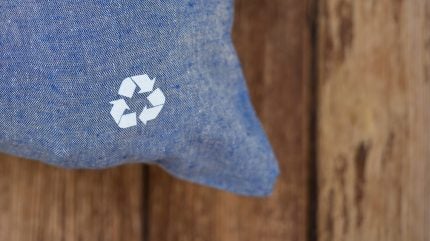
Known as the Global Responsible Textile Standard (GRTS), the new standard is set to broaden the scope of sustainable practices beyond organic textiles, encompassing a range of fibres while upholding principles of health, ecology and fairness.
It also aims to provide a platform for companies using various responsible fibres to showcase their environmental and social commitments

Discover B2B Marketing That Performs
Combine business intelligence and editorial excellence to reach engaged professionals across 36 leading media platforms.
Global Standard is seeking input from NGOs, certification bodies, consumers and companies as part of the consultation, which opens on 14 July.
The organisation aims to finalise and publish GRTS Version 1.0 in the fourth quarter of 2025.
Global Standard’s internationally recognised Global Organic Textile Standard (GOTS) will continue to be the global benchmark for organic textiles.
GOTS, implemented in more than 15,000 certified facilities across 87 countries, offers third-party assurance that organic textiles are produced by maintaining environmental integrity and social responsibility standards.

US Tariffs are shifting - will you react or anticipate?
Don’t let policy changes catch you off guard. Stay proactive with real-time data and expert analysis.
By GlobalDataGRTS will allow entities that already process non-organic fibres under GOTS certification to bring these materials under rigorous certification as well, leveraging the existing GOTS infrastructure and expertise of Global Standard. This approach aims to streamline the certification process and maintain affordability within the non-profit structure.
The new standard, which is an add-on to GOTS, is expected to meet market demands and regulatory requirements efficiently without imposing additional costs or complexity.
Global Standard managing directors Rahul Bhajekar and Claudia Kersten said: “This expansion of the Global Standard portfolio empowers us to maintain minimal fees in our non-profit setup, as we are dedicated to avoiding additional burdens on the industry’s sustainability measures. On the one hand, the GOTS framework will now serve as a foundation for broader applications, while on the other, it continues to stand as the leading voluntary sustainability standard in the organic textile sector.”
Shared principles between GRTS and GOTS
- Human rights adherence including strict prohibition of child and forced labour, discrimination and safe working conditions
- Environmental protection through mandatory eco-friendly processes and restrictions on chemical inputs
- Due diligence in responsible business conduct such as risk assessment and mitigation procedures
- Transparency in tracking and volume reconciliation across value chain
- Independent assurance by GOTS-approved certification bodies
- Comprehensive scope from raw material sourcing to finished product; and exclusion of GMO-origin fibres. GRTS requires all fibres input to be registered in the Global Fibre Registry (GFR), which verifies non-GMO origins and compliance with stringent standards.
Earlier this month, Global Standard said that its GOTS Version 7.0 is found to closely align with the OECD Due Diligence Guidance for Responsible Supply Chains in the Garment and Footwear Sector.





